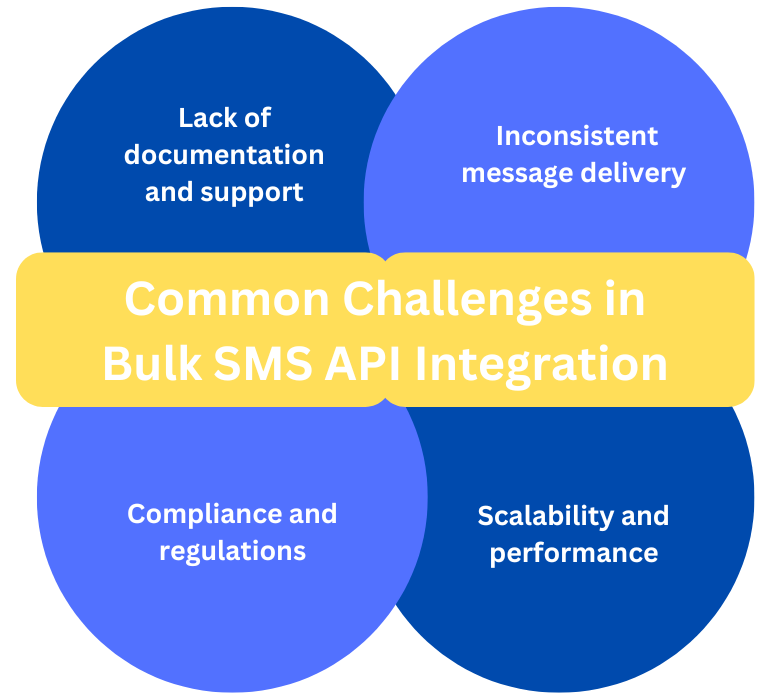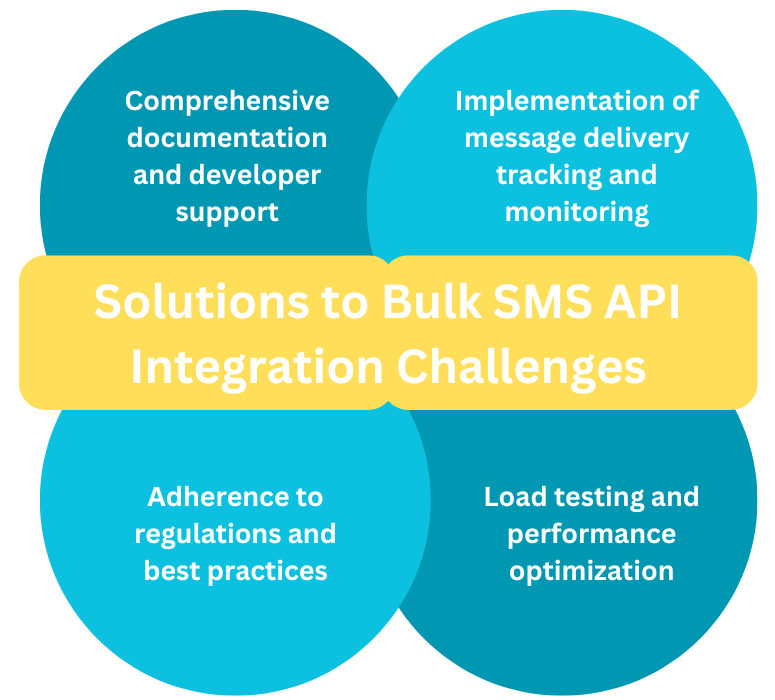Common Bulk SMS API Integration Challenges And Solutions
Bulk SMS API integration refers to the process of incorporating a bulk SMS service into an existing application or system using an API.
This allows businesses to send large volumes of text messages to their customers or target audience efficiently and seamlessly.
The Importance of bulk SMS for businesses cannot be overstated. It offers a direct and effective way to communicate with customers, promote products or services, send important notifications, and engage with the target audience.
In today’s digital age, where mobile phones are all over, bulk SMS can be a powerful tool for marketing and customer engagement.
Common Challenges In Bulk SMS API Integration
Bulk SMS API integration can be challenging for beginners. Some of the common challenges in bulk SMS API Integration are listed below.
Lack of documentation and support
Integrating a bulk SMS API can be challenging when there is a lack of proper documentation and support from the API provider.
Without clear documentation and support, developers may struggle to understand the integration process and troubleshoot any issues that arise.
Inconsistent message delivery
Another common challenge in bulk SMS API integration is the inconsistency in message delivery.
This can be due to various factors such as network issues, message routing problems, or insufficient throughput from the API provider.

Compliance and regulations
When integrating a bulk SMS API, businesses need to ensure compliance with various regulations and standards for SMS messaging.
This includes obtaining consent from recipients, adhering to opt-out requests, and complying with data privacy laws such as regulations by TRAI.
Scalability and performance
Scalability and performance issues can arise during bulk SMS API integration, especially when trying to send a large volume of messages.
Developers need to ensure that the API can handle the scalability requirements of their business and deliver messages consistently without compromising performance.
Solutions To Bulk SMS API Integration Challenges
When integrating a Bulk SMS API, it is essential to address several challenges to ensure successful implementation. These challenges include the following:
Comprehensive documentation and developer support
It is crucial to provide detailed documentation and robust developer support to facilitate smooth integration for developers.
This includes clear and precise instructions, sample code, and relevant resources to assist in the integration process.

Implementation of message delivery tracking and monitoring
Incorporating functionality for tracking and monitoring message delivery is vital to ensure that messages are successfully delivered to recipients.
This involves integrating mechanisms to track delivery status, response handling, and error management.
Adherence to regulations and best practices
Compliance with telecommunications regulations and industry best practices is paramount when integrating a Bulk SMS API.
This includes obtaining necessary permissions, adhering to data protection regulations, and following industry standards to ensure legal and ethical usage.
Load testing and performance optimization
Conducting rigorous load testing and optimizing the performance of the integrated Bulk SMS API is essential to handle high volumes of messages efficiently.
This involves testing the API under various load conditions, identifying bottlenecks, and optimizing the API for optimal performance and reliability.
Addressing these challenges will contribute to a successful Bulk SMS API integration, ensuring seamless communication with end users while maintaining compliance with regulations and industry standards.

